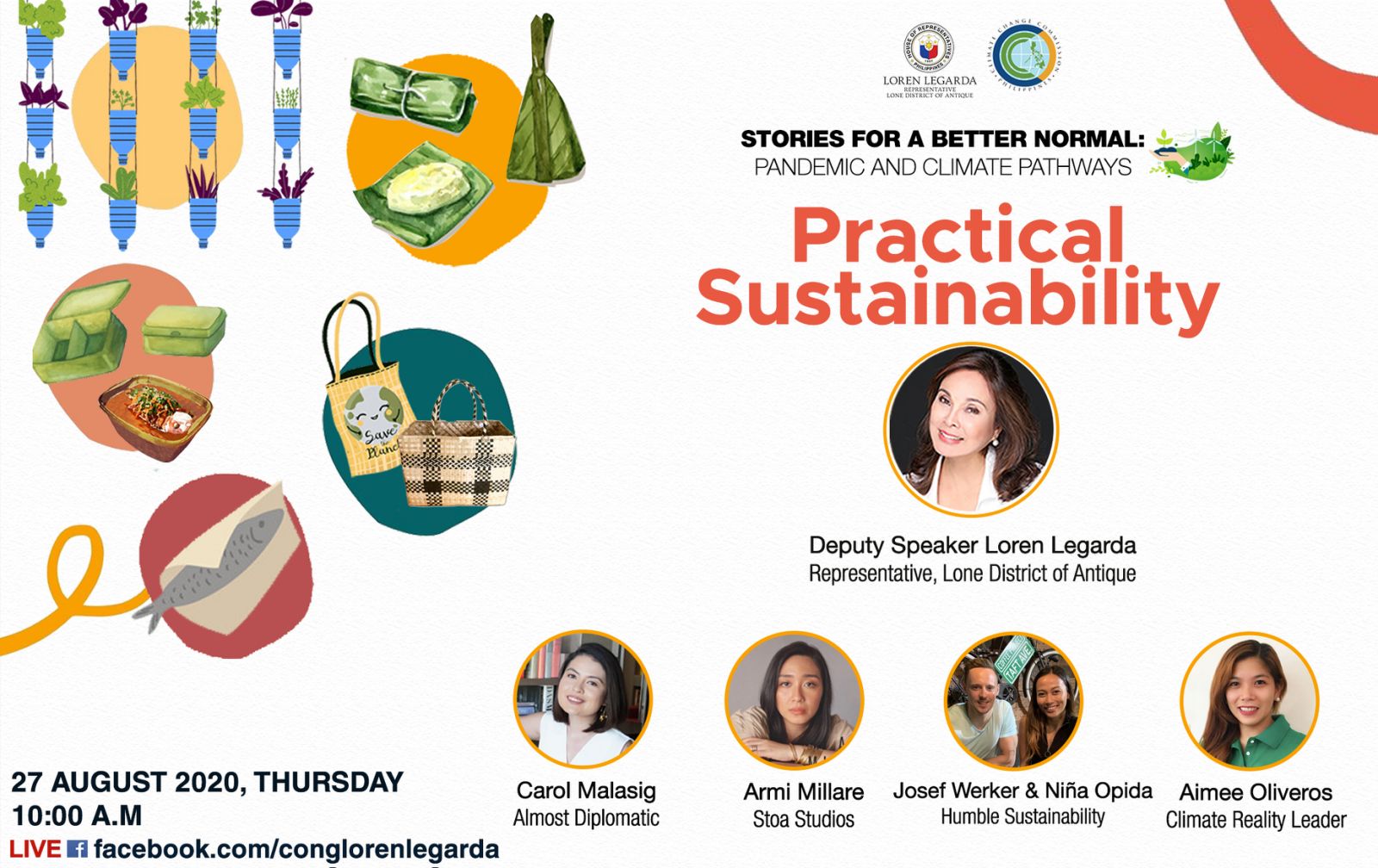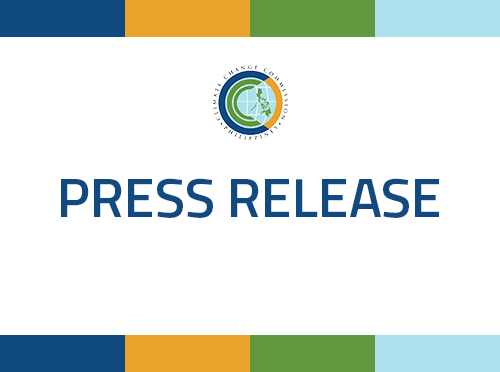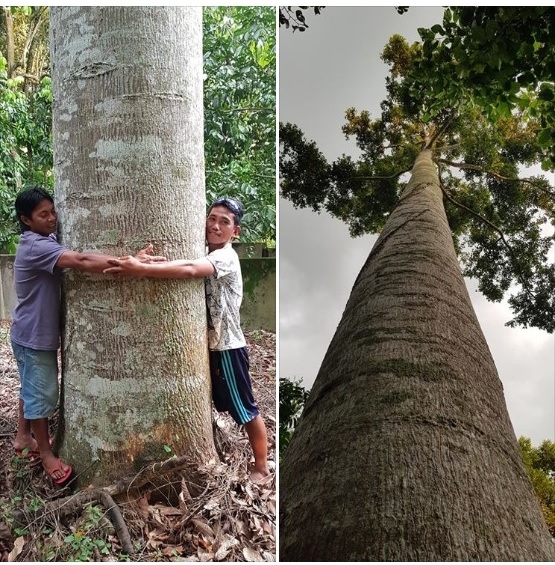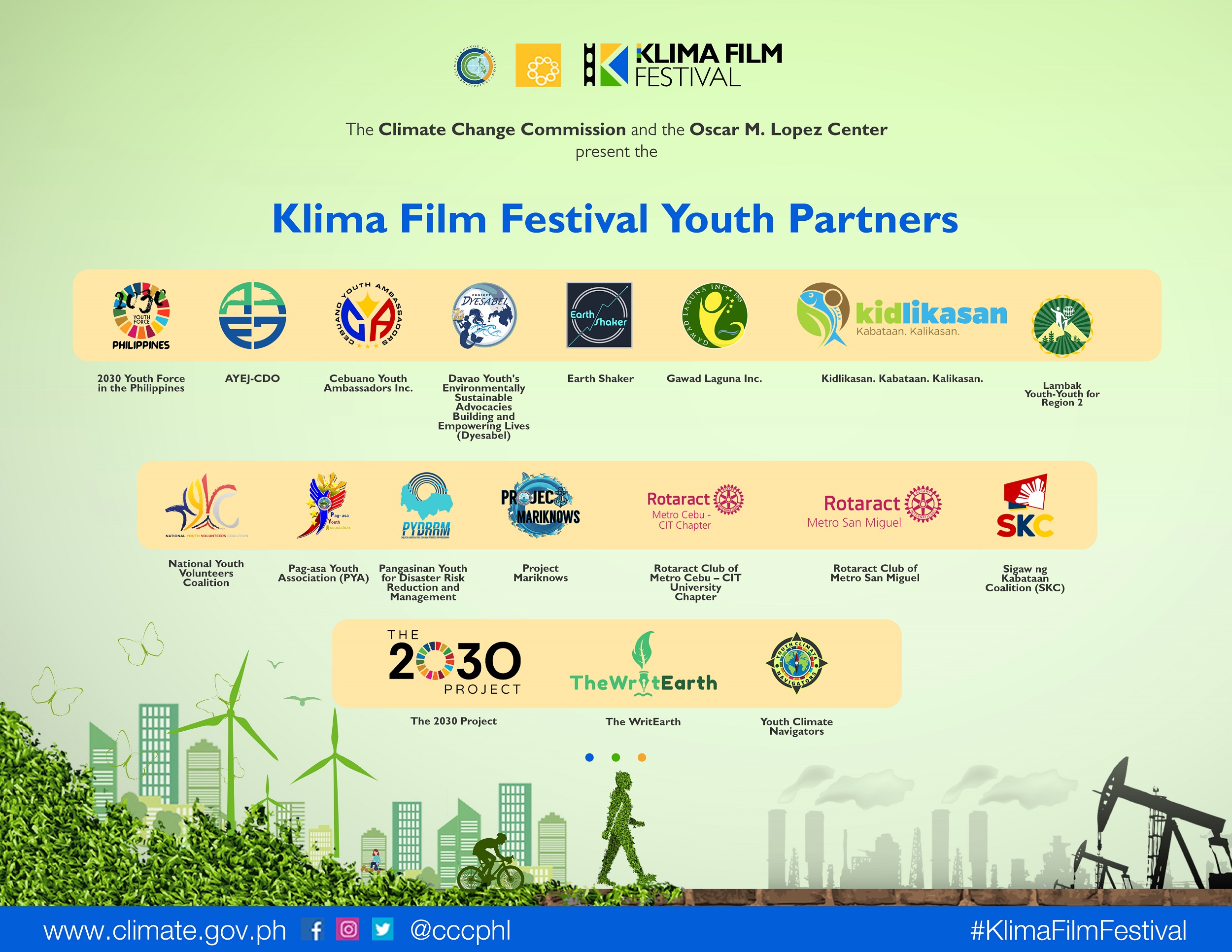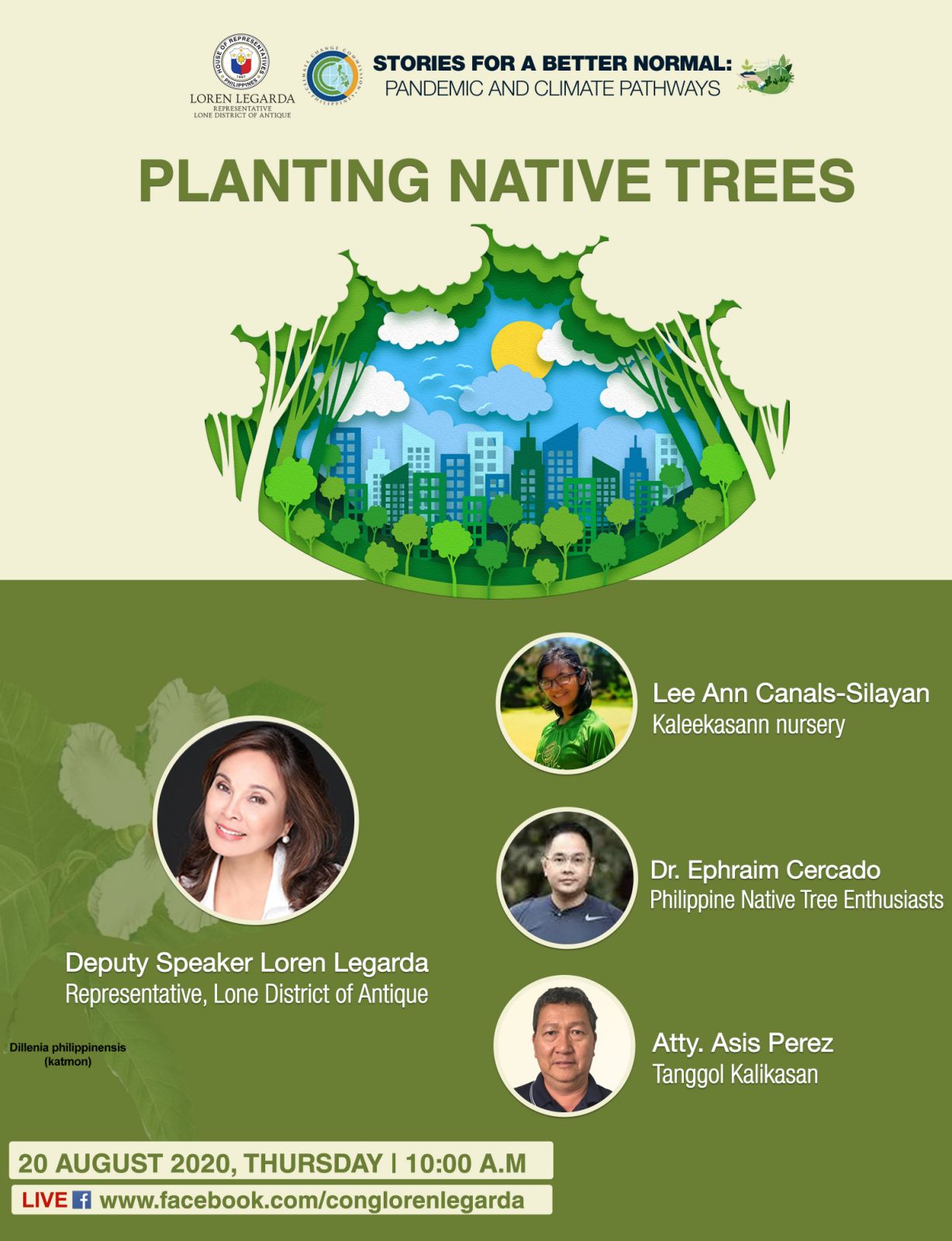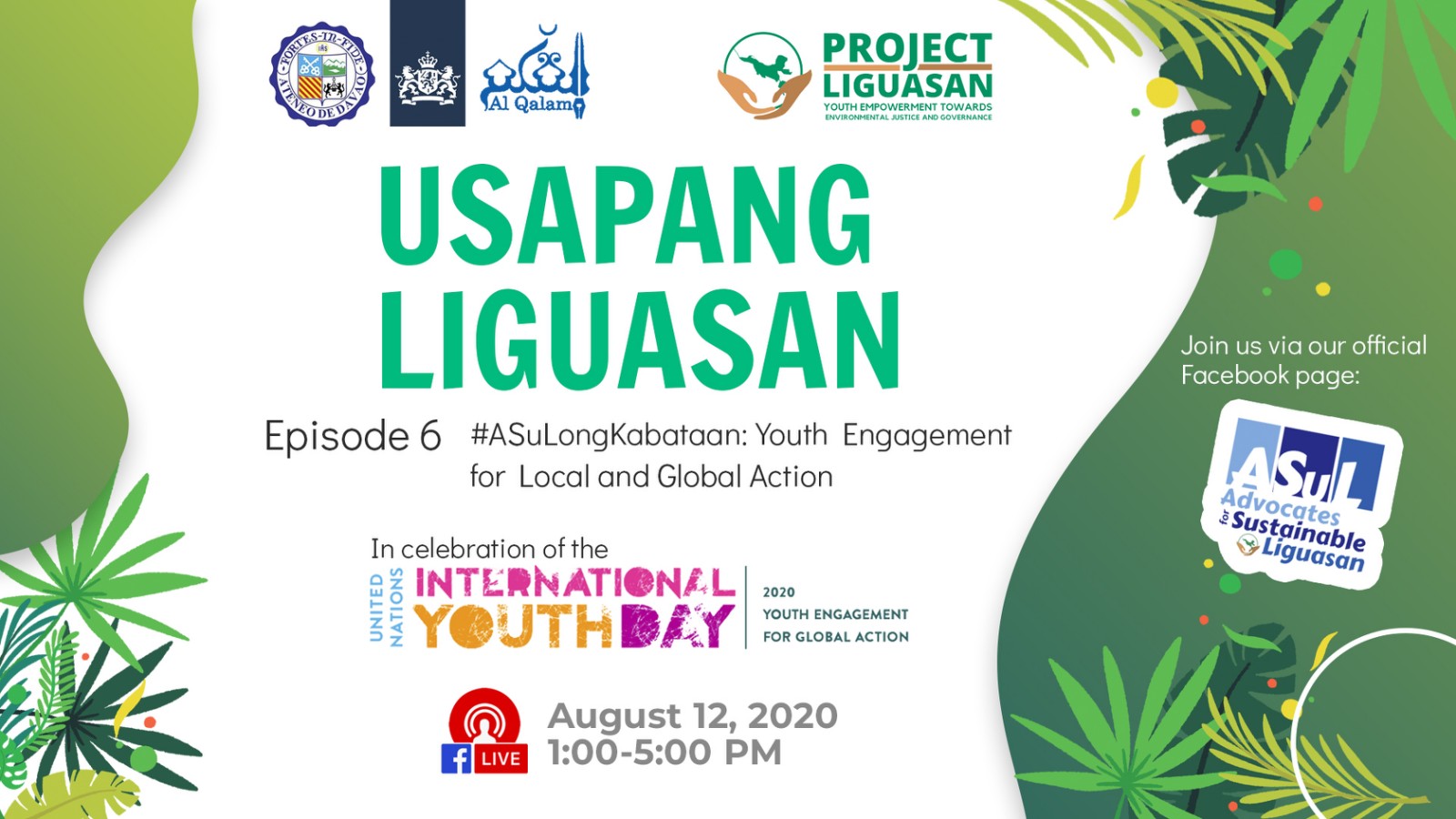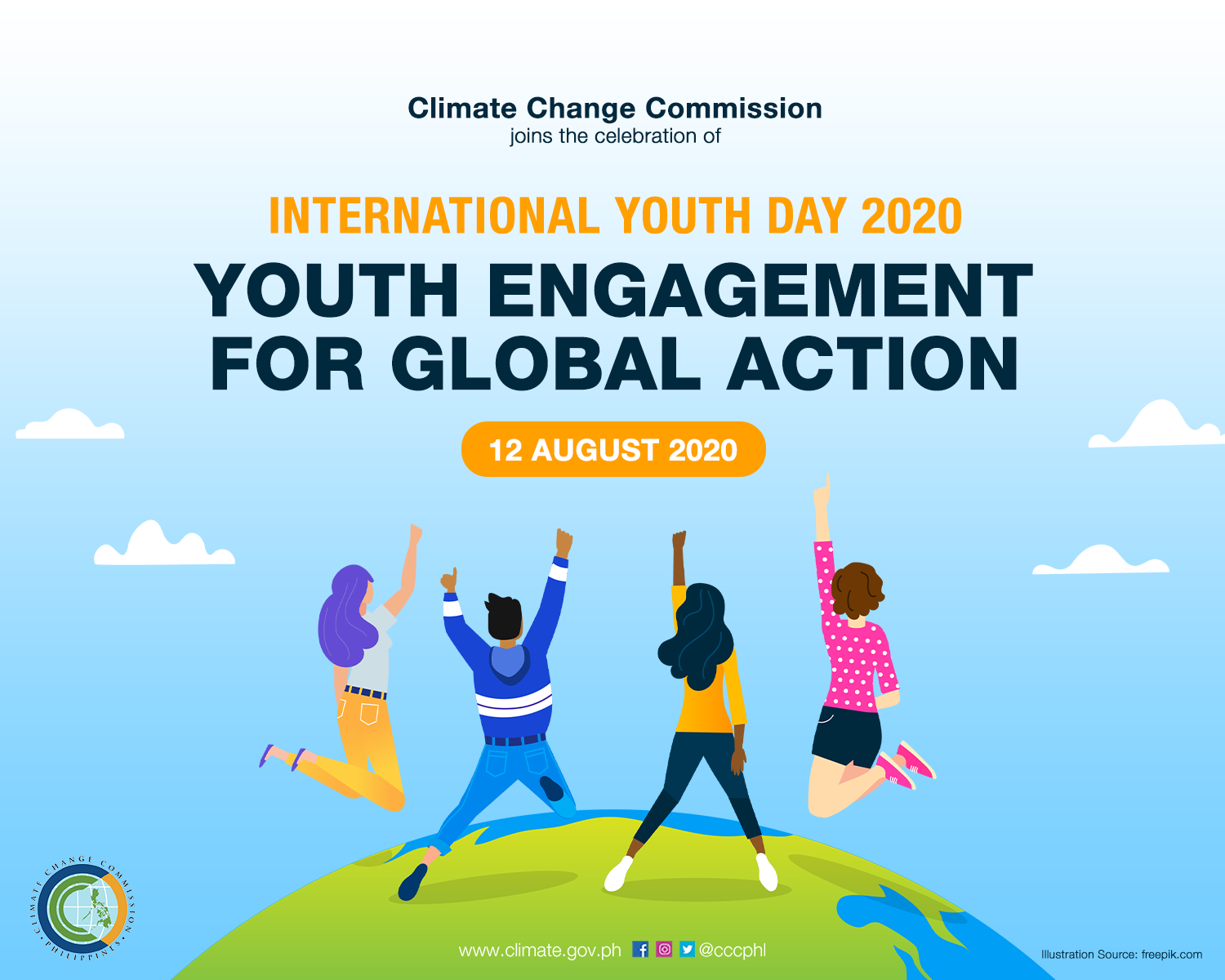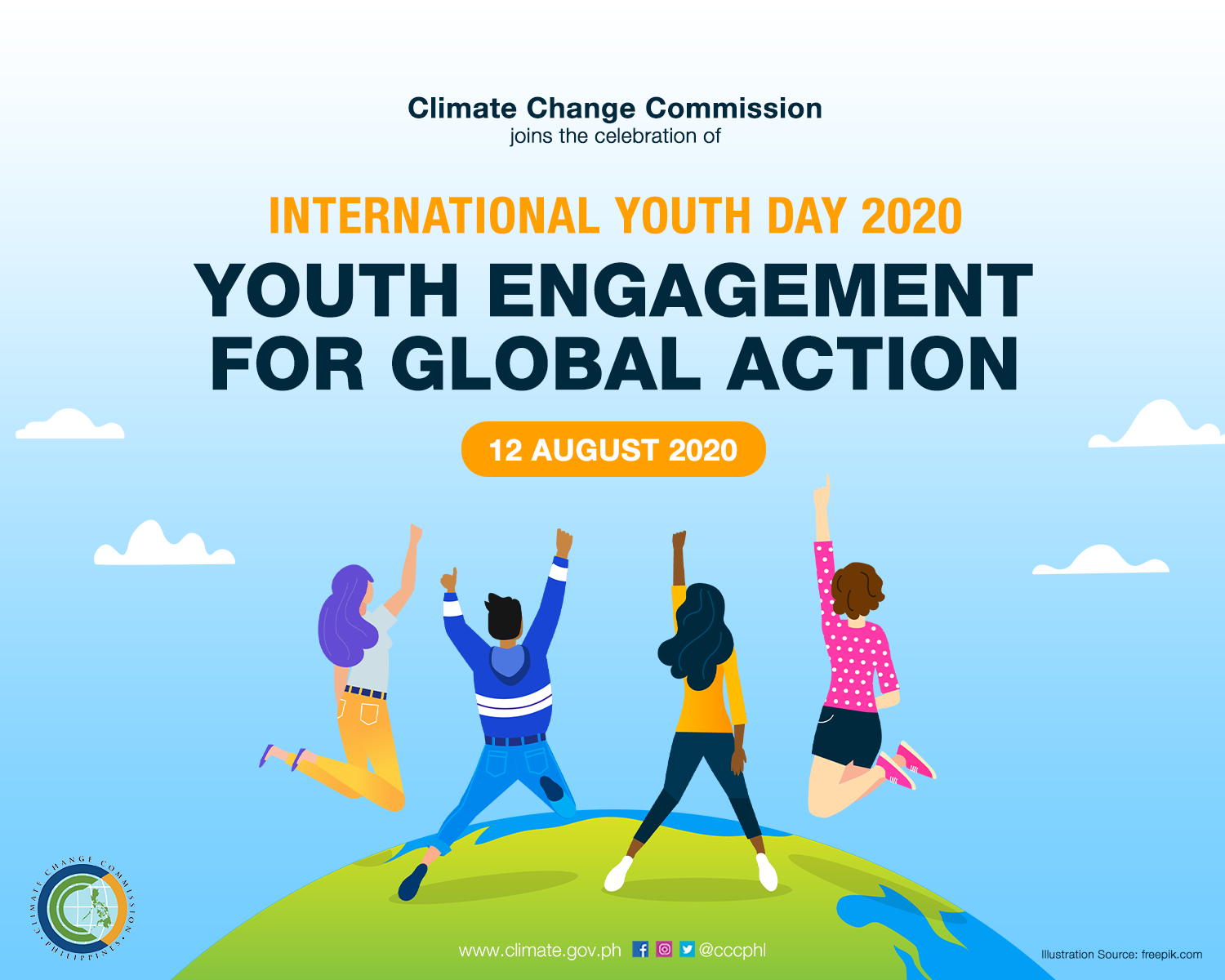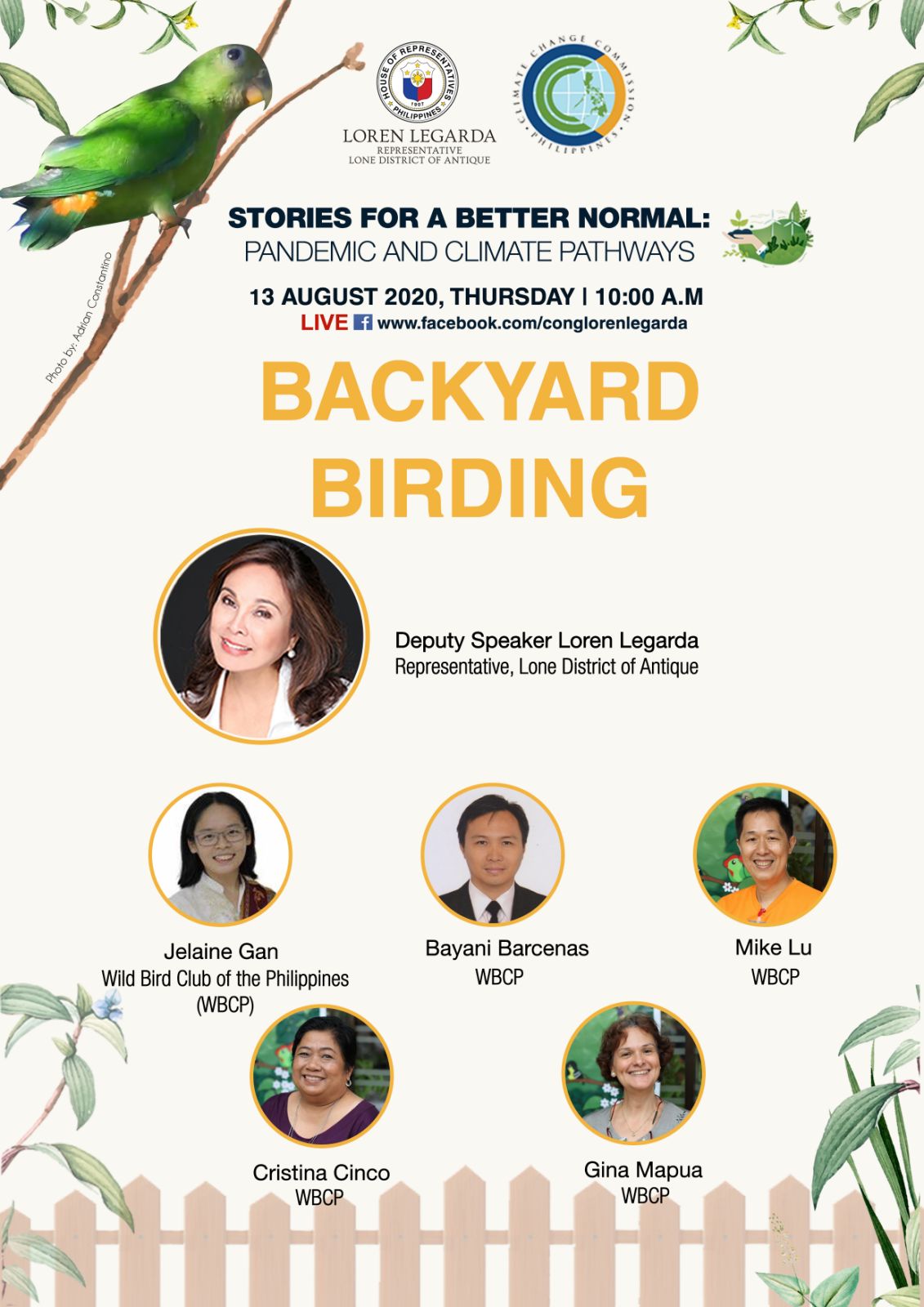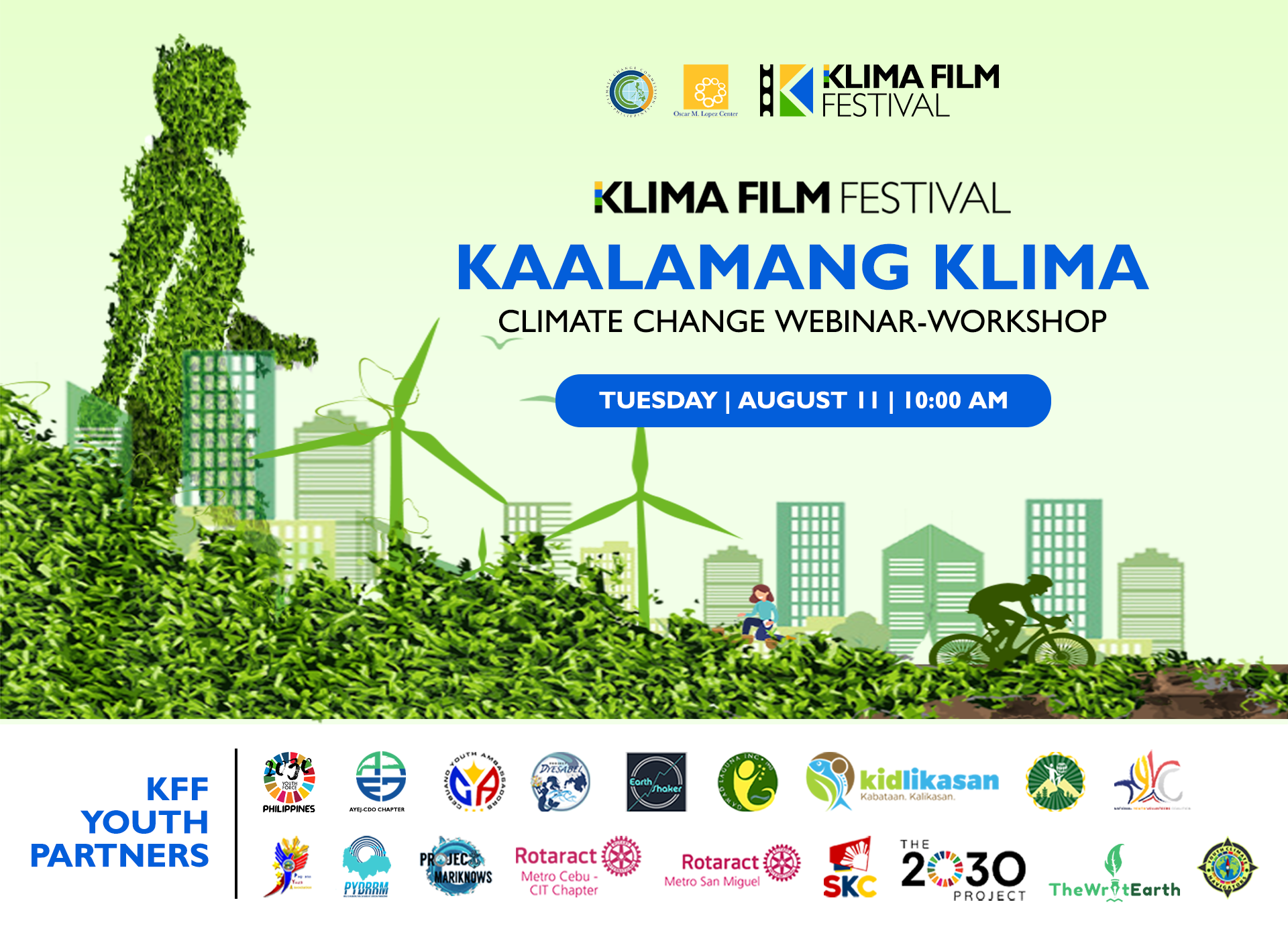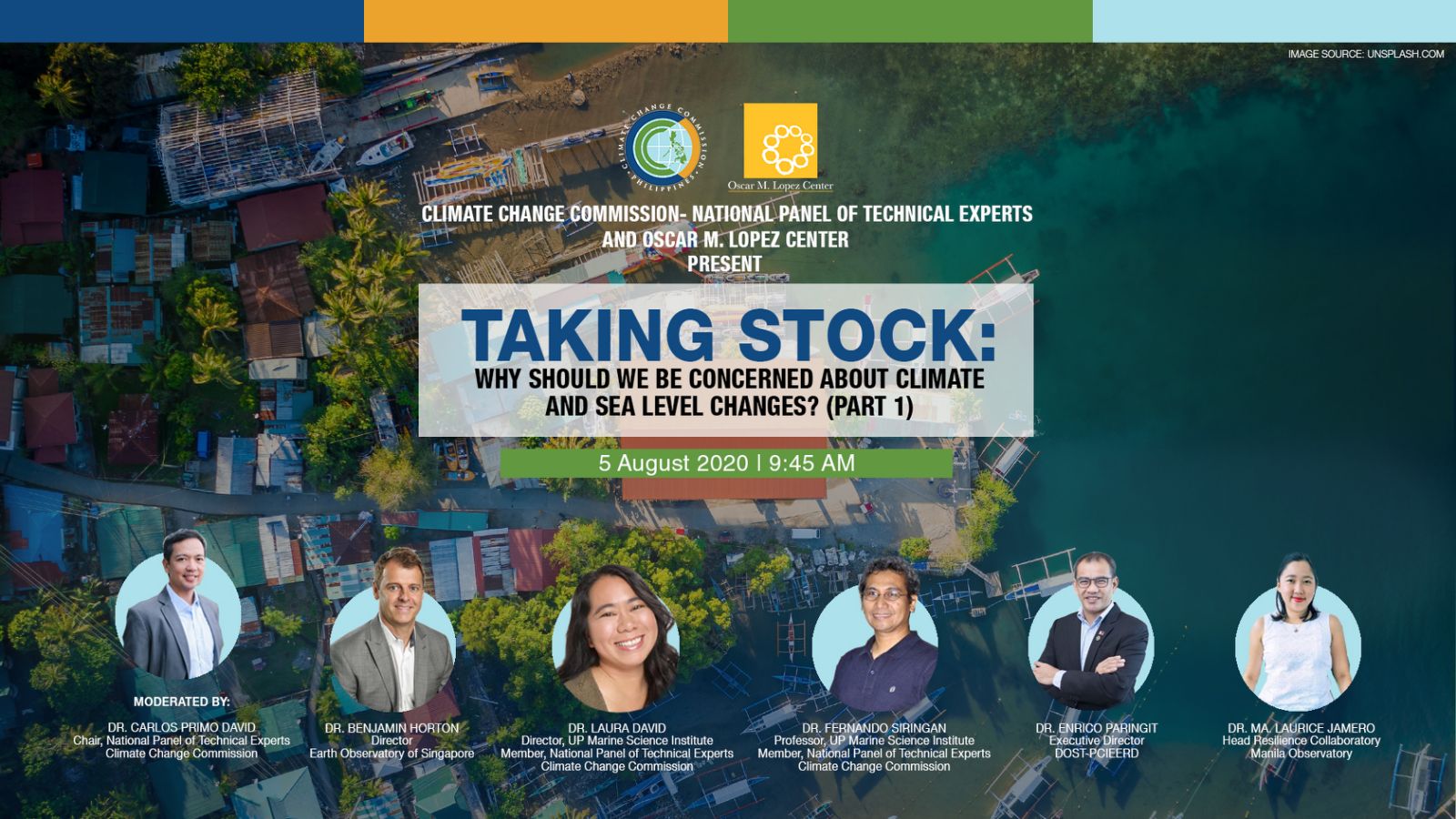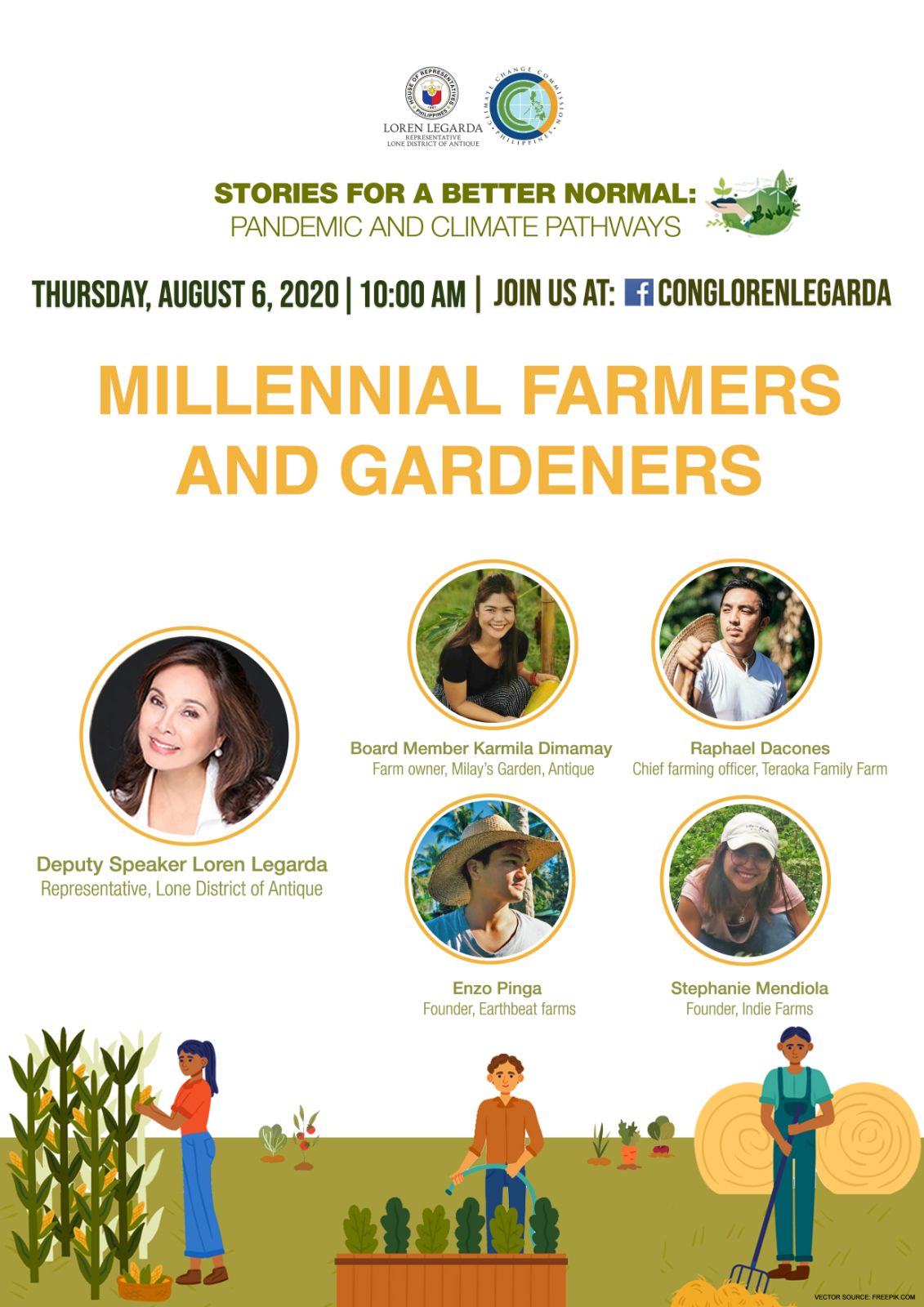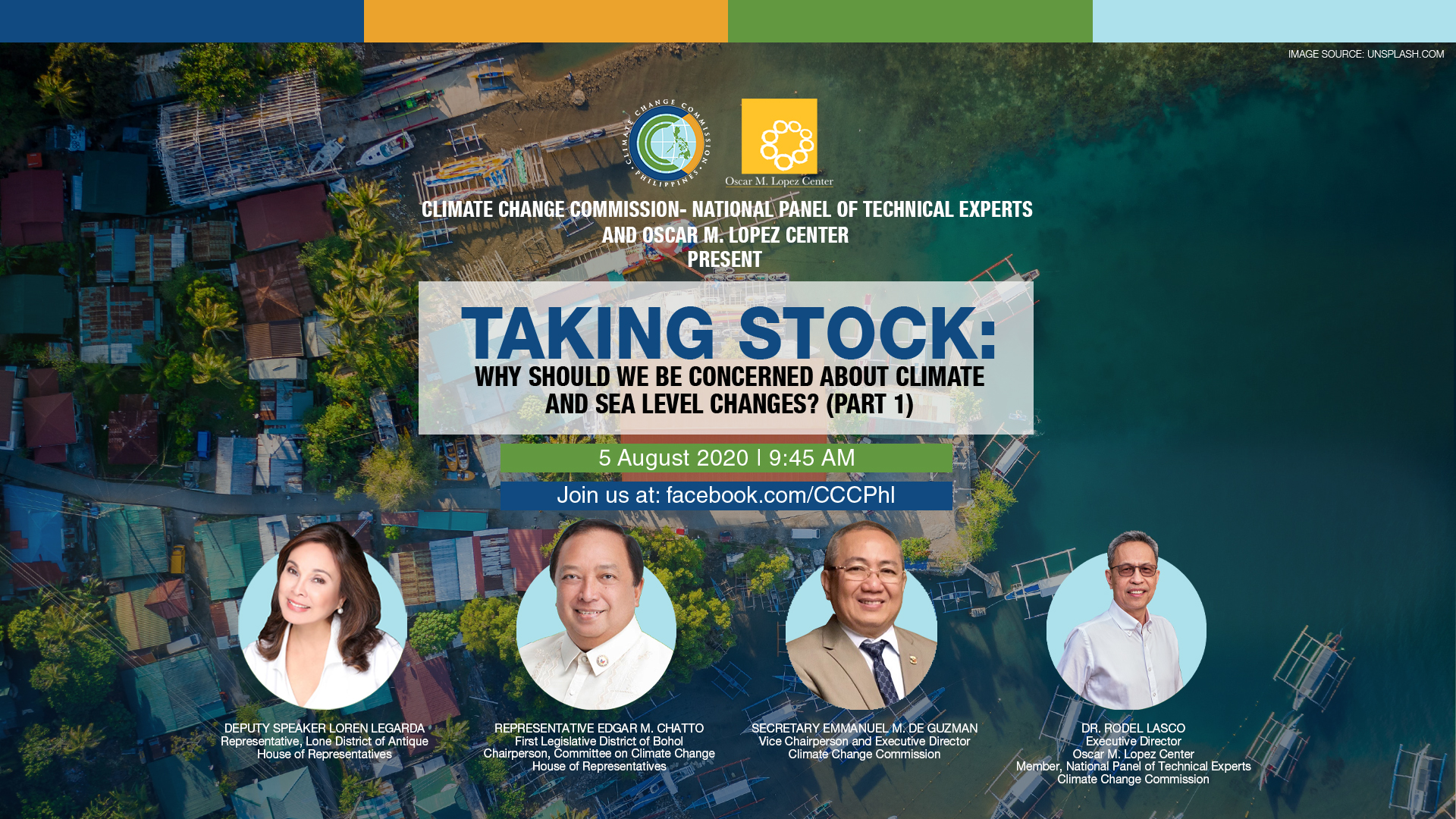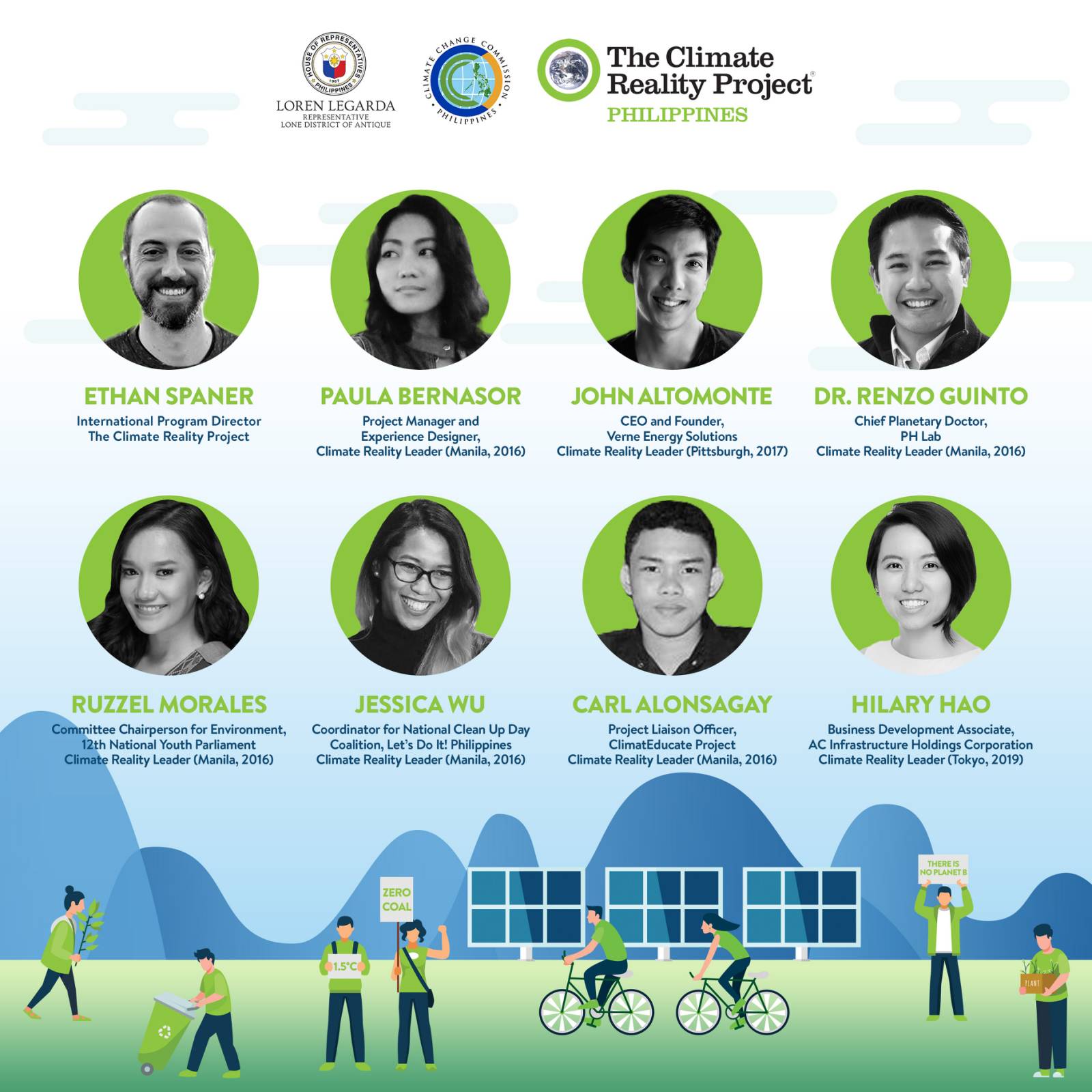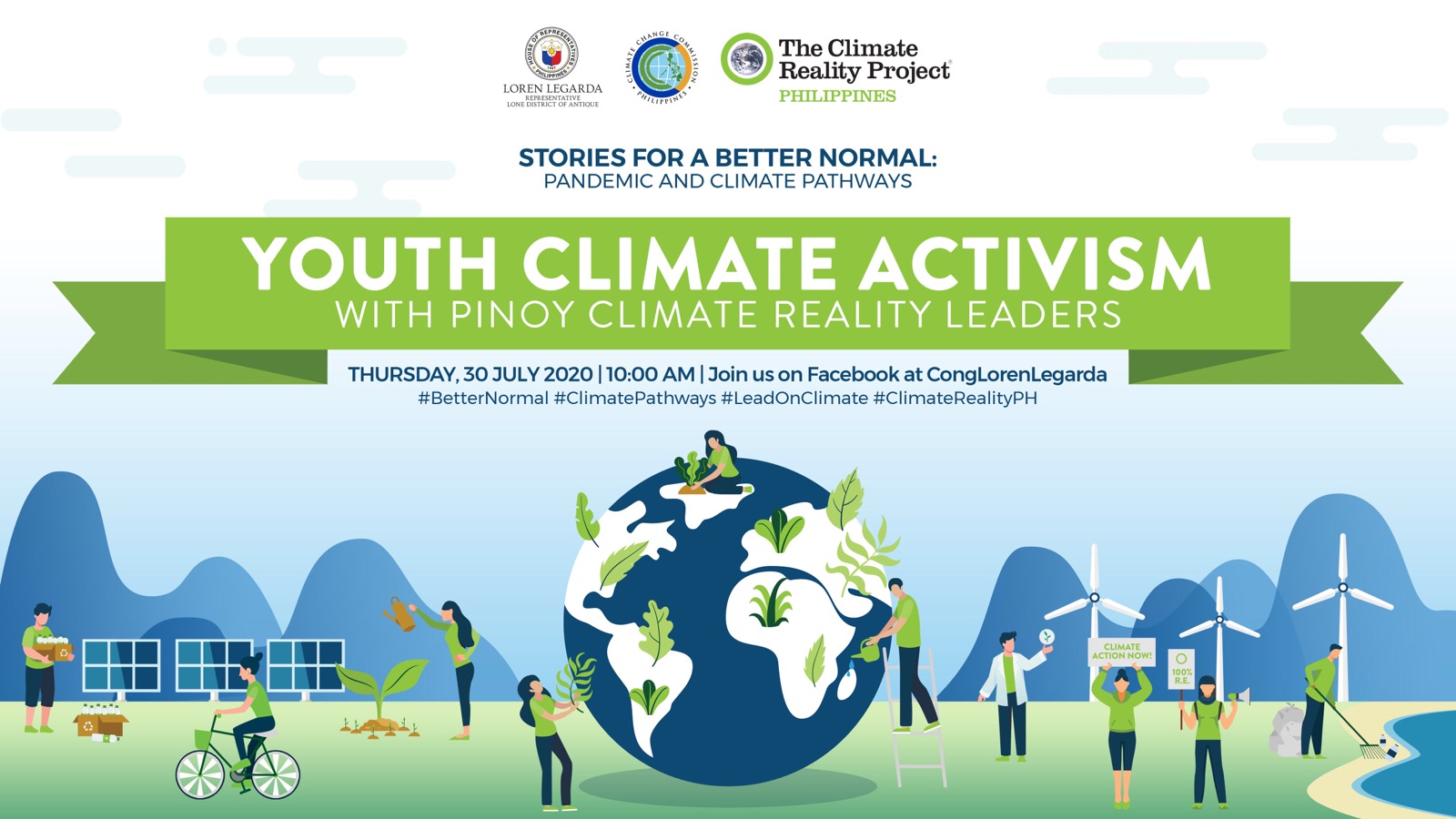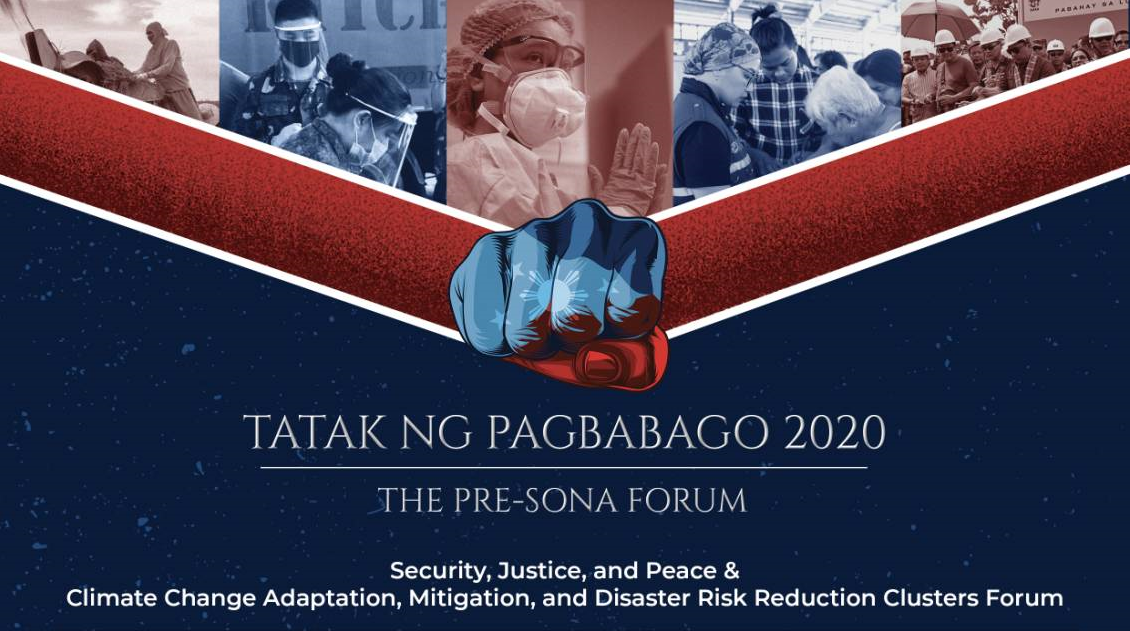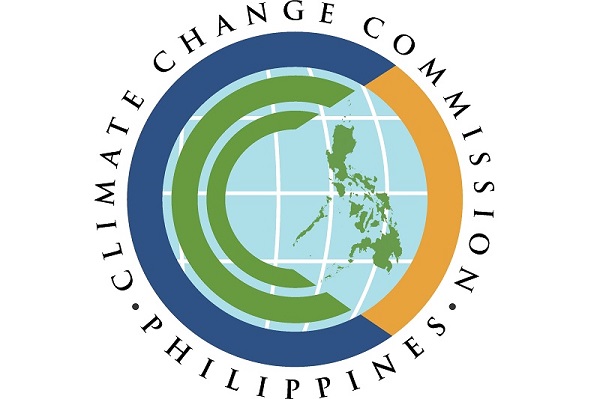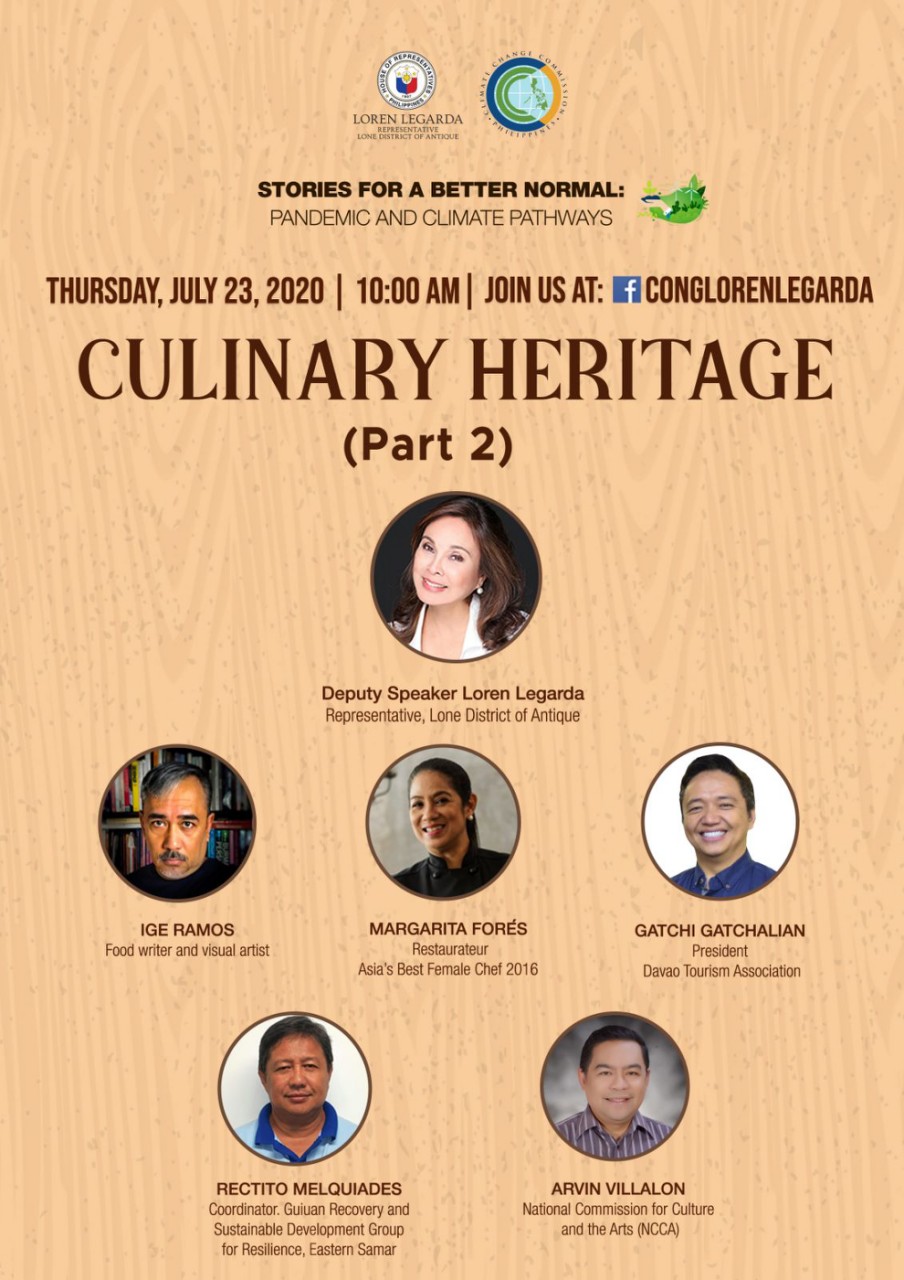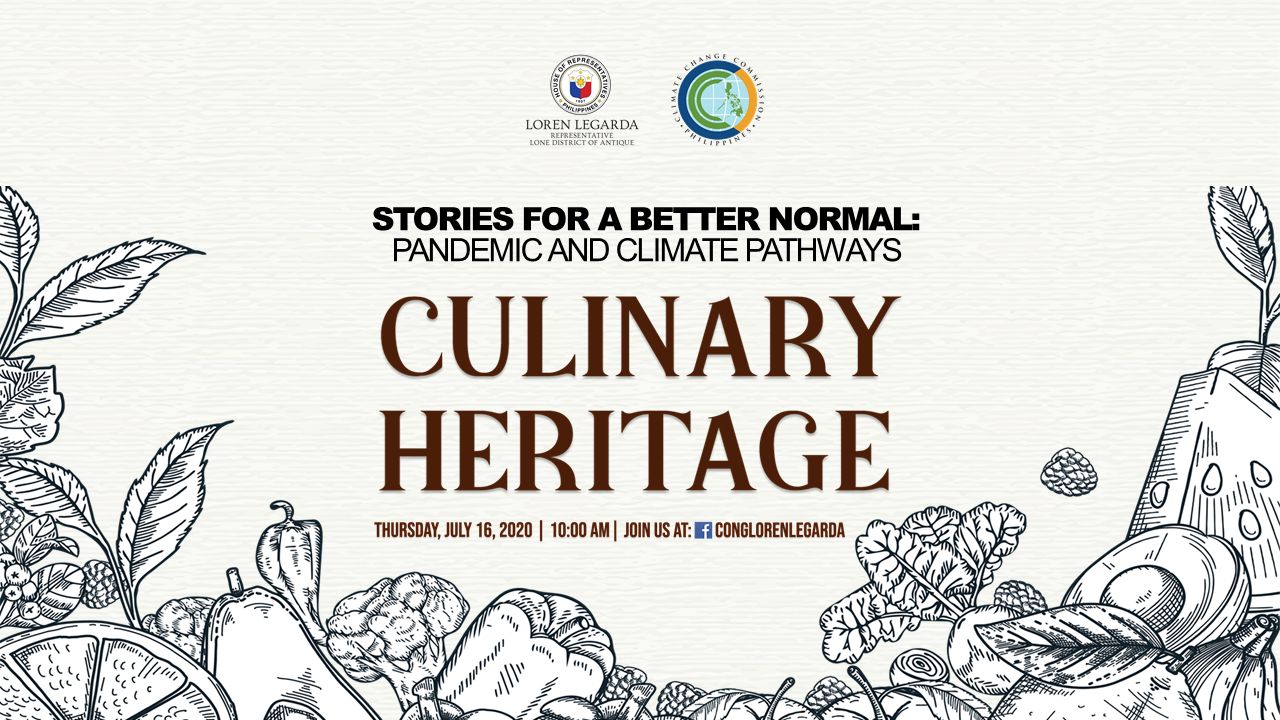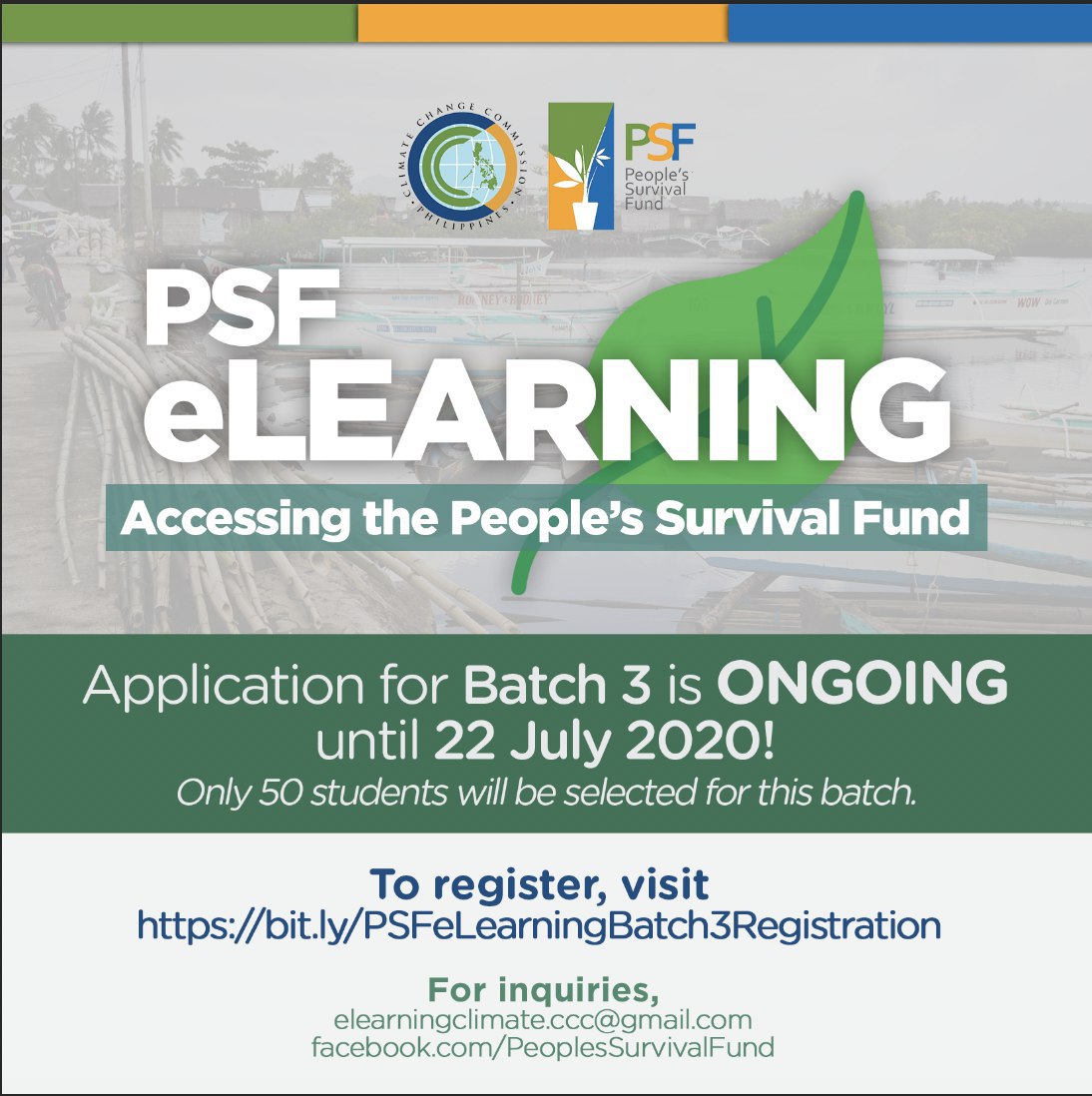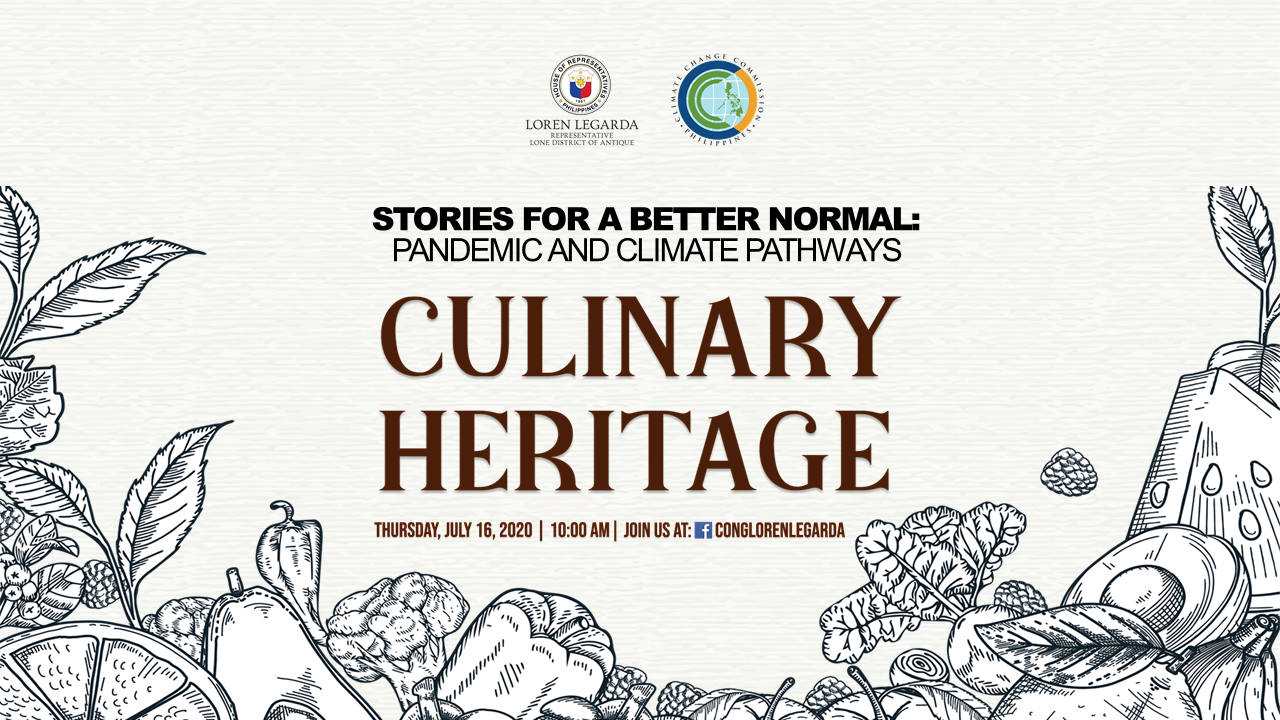MANILA, 3 August 2020 — For the 11th episode of “Stories for a Better Normal: Pandemic and Climate Pathways,” with the topic on “Youth Climate Activism,” House Deputy Speaker Loren Legarda, together with fellow Pinoy Climate Reality Leaders, underscored the critical role of the youth in climate action and shared their insights and experiences on how they are leading climate initiatives before and during this pandemic.
Featured in last Thursday’s episode were youth Climate Reality Leaders Ms. Christine Paula Bernasor, Project Manager and Experience Designer from Talisay, Cebu; Mr. Johnny Altomonte, CEO and Founder of Verne Energy Solutions; Dr. Renzo Guinto, Chief Planetary Doctor of PH Lab; Ms. Ruzzel Morales, Committee Chairperson for Environment of the 12th National Youth Parliament; Ms. Jessica Wu, Co-founder of Lesstics; Mr. Carl Alonsagay, Project Liaison Officer of the ClimatEducate Project; and Ms. Hilary Hao, Business Development Associate of AC Infrastructure Holdings Corporation.
Ms. Nazrin Castro, Philippine branch manager of The Climate Reality Project-Philippines also joined the online conversation as Legarda’s co-host. Mr. Ethan Spaner, Director of The Climate Reality Project’s International Program, also joined from their Washington, D.C. headquarters.
Mr. Spaner shared how The Climate Reality Project supports the community of Climate Reality Leaders in engaging world leaders, policymakers, experts, and advocates to find solutions to the global climate crisis. He also stressed the importance of youth activism in today’s global challenges.
“Youth activism around the world is important to us. We are in full understanding that tomorrow’s leaders need to have the space today. But we’ve found out that the youth are already the leaders of today. We could learn a lot by listening to our young leaders in our country, especially the Filipino youth who are passionate and fighting for their lives. They give me hope,” said Spaner.
Ms. Bernasor presented an overview of climate initiatives and activism online, and how the digital landscape is presenting various avenues to advocate for climate action even on a pandemic. She explained how social media and digital platforms should be utilized in terms of advocacy campaigns, including awareness raising and mobilization, especially in urging environmental protection and climate action towards sustainability.
“We had gotten more reliant on digital platforms. It has become easier to convince the youth and everyone who are affected by the pandemic that we should care about our climate and environment. Climate activism does not need a big budget. It just needs you—quarantine or no quarantine! A small seed of action can grow into a rebellion,” said Bernasor.
Mr. Altomonte shared how he decided to venture into renewable energy at a young age. He also encouraged the greening local government units (LGUs), which could help address other issues by the communities.
“The renewable energy and energy efficiency solutions will solve a lot of existing pain points for LGUs, such as clean water, access to energy, market access, employment opportunities women empowerment. Sustainable development is dependent on sustainable energy. It's really important even at the barangay level to start greening from an energy perspective because energy is the foundation from which we move forward. We can’t have a sustainable community without sustainable energy,” said Altomonte.
Dr. Guinto, a medical doctor, expressed that the health system of the future must be universal, high quality, climate smart, and pandemic-resistant. He also said that health workers must be engaged as LGUs craft their Local Climate Change Action Plans (LCCAPs) and that climate change and health must be integrated into our education system.
“Early on in my career, I already realized that my patients are not just the people, but it's also the planet. Both people and the planet are currently sick. As we talk about COVID, we know in the backdrop there is a climate crisis that is continuously happening. In an increasingly warming planet, the risk for infectious diseases becomes so high. There are old infectious diseases that we expect to reemerge and new ones to emerge,” said Dr. Guinto, who also called for the flattening of our curve in terms of carbon emissions and ecological footprint.
Ms. Morales discussed the importance of engaging the youth in crafting national plans and strategies and underscored the need for the government to step up its efforts on climate action.
“The youth and majority of groups and communities have long been asking for an alternative to this current system. We know and feel that we deserve better. What we need is a balanced revolution. We need not only the youth to step up, but also the government. We are tired of token representation. We want action. The future is for the youth. We will claim it, no matter what,” said Morales.
Ms. Wu shared her initiatives on zero waste and her advocacies on women and youth empowerment and youth, as well as the importance of recognizing the people’s connection with the environment.
“We are not separate from the environment. All of us are interconnected. We should be conscious of the intergenerational responsibility in all that we do. If we do not act now, when?” said Wu.
Mr. Alonsagay introduced the ClimatEducate, a youth-led climate change education project composed of students, youth advocates, young professional researchers and educators, which aims to promote climate change education in different schools and communities in the Philippines and in the global south. He shared how the project could complement and further integrate climate change and disaster risk reduction concepts into the K-to-12 curriculum.
“One thing I realized in the last four years of providing climate awareness to schools and communities is that we cannot teach about the changing climate if we don’t make sure they know how to read and have food on the table. Climate change education should go along with the true aim of social justice,” said Alonsagay.
Ms. Hao talked about climate change and nutrition, and encouraged fellow millennials to switch to a less-meat and plant-based diet to promote nutrition, while helping fight climate change.
“Food is really something I'm passionate about. It’s something that should not be too difficult to incorporate in our life and has a positive effect on our climate. If we eat a more balanced diet, with more fruits and vegetables, it will actually give less strain on the planet,” said Hao.
A Climate Reality Leader herself, Legarda encouraged the young leaders to pursue their passions and thanked them for taking an active role in helping implement environment and climate change laws, especially the Ecological Solid Waste Management Act and the Expanded National Integrated Protected Areas System Act.
“To my fellow Climate Reality Leaders, push the way forward. Do concrete actions at home and within our communities. Engage other leaders, so all this talk will not go to waste. Our efforts at the local level is the most important. Put your initiatives online, so others may know what climate action means,” Legarda concluded.
Climate Reality Leaders are individuals from diverse backgrounds and fields of discipline who have undergone training with The Climate Reality Project, which is founded by former US Vice President Al Gore, a climate activist himself who was awarded the Nobel Prize for the film “An Inconvenient Truth.”
As an online discussion to promote health, environmental consciousness, and climate-adaptive practices, Stories for a Better Normal aims to change the mindset of individuals, families, and communities by demonstrating ways in which a ‘better normal’ can be realized within our communities.
This online discussion is organized in partnership between the Office of Deputy Speaker Legarda and the Climate Change Commission, with support from the Institute for Climate and Sustainable Cities, The Climate Reality Project-Philippines, and the Mother Earth Foundation.
August 02, 2020 Sunday

